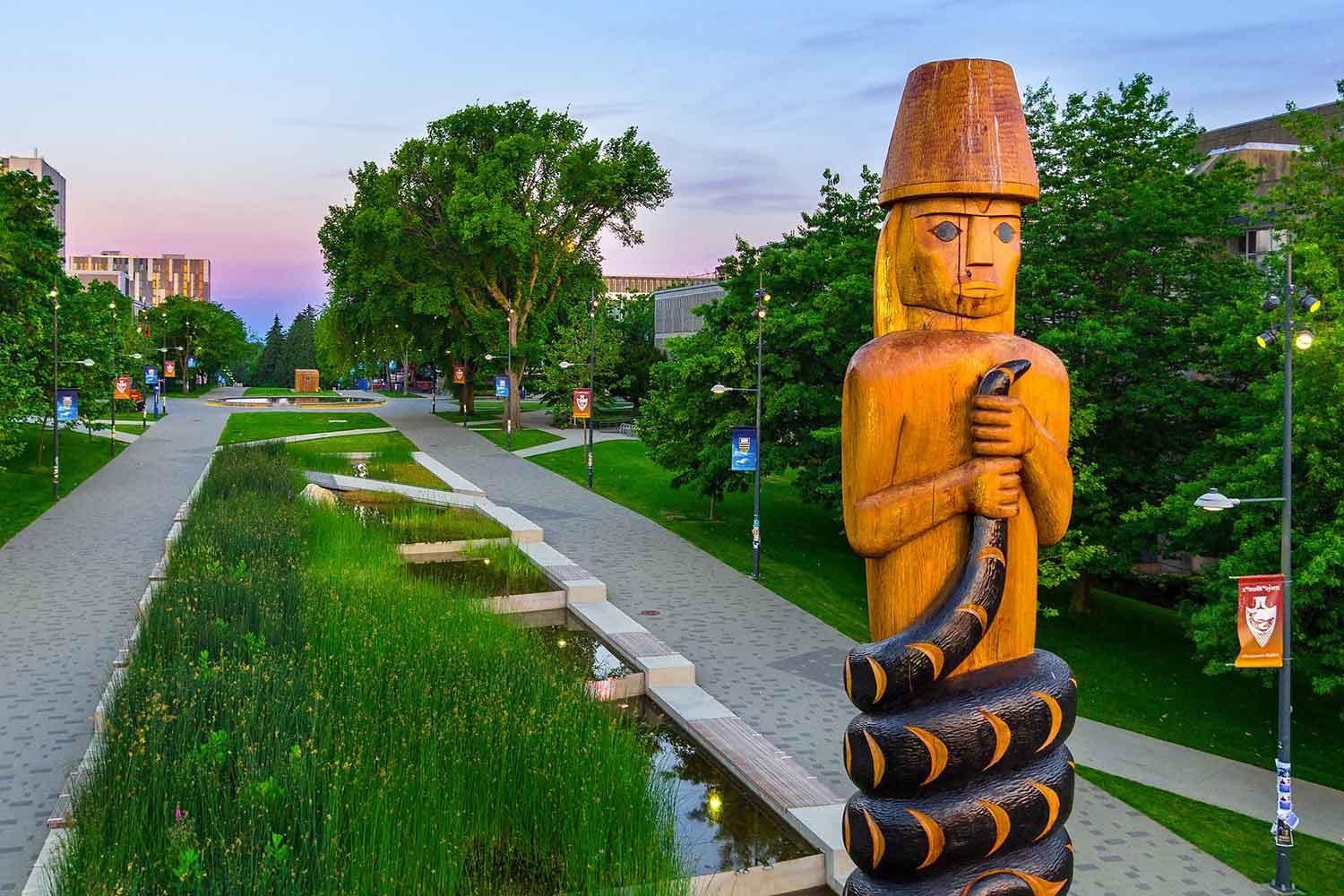

The School of Social Work at the University of British Columbia declares its commitment to progressive recognition of and reconciliation with Indigenous Peoples.
We acknowledge that our building rests on the traditional, unceded, and ancestral territory of the hən̓q̓əmin̓əm̓-speaking Musqueam peoples. We further acknowledge and respect that the Jack Bell School of Social Work building as well as the degrees, research, programs, and services we provide are on the traditional territory of Indigenous Peoples.
Schools of Social Work in Canada are aware of the depth of the deleterious impact that colonial actions, legislation, policy and institutions, including Residential Schools and child welfare systems, have on Indigenous Peoples, and we remain committed to critically and reflexively understanding Social Work and our School’s role in past injustices, and to working to move forward for a better future.
This includes, but is not limited to, building a strong capacity in students, staff, faculty and researchers so that they can assess, critique and resist policies and practices that are colonial, unjust and unfair.
The School of Social Work is committed to playing our role in addressing the Calls to Action that have been made by the Truth and Reconciliation Commission.
We further acknowledge that the School teaches social workers who will work in many different areas of society and that we are in a position to uphold the spirit and intent of the TRC Calls to Action, particularly,
92iii. Provide education on the history of Aboriginal Peoples, including the history and legacy of Residential Schools, the United Nations Declaration on the Rights of Indigenous Peoples, Treaties and Aboriginal rights, Indigenous law, and Aboriginal Crown relations. This will require knowledge and skills-based training in intercultural work, conflict resolution, human rights, and anti-racism;
- …. close the gaps in health (and wellbeing) outcomes between Aboriginal and non-Aboriginal communities.
We are committed to developing and sharing program models, tools, and resources that will improve Indigenous Peoples’ access to the School of Social Work’s degrees, research, programs and services, and to building and enhancing Indigenous community research capacities.
We will work reciprocally with Indigenous communities to ensure that they have an active presence in our School, if that is what they desire, and we are committed to learning from Indigenous Knowledge and practices, and to incorporating them into the teachings and work of the School.
In terms of research, we endorse the principles of Ownership, Control, Access and Possession (OCAP) and respect the relationship of Indigenous Peoples to their cultural knowledge, data, and information. We further recognize the responsibility of researchers to participate in knowledge mobilization back to Indigenous communities and peoples, in a gentle, respectful and good way.
In addition, our commitment includes decolonizing direct social work practice to address the ongoing oppression of Indigenous Peoples in order to move forward in a good way, and improving the place social work has in Indigenous communities.
Our vision includes fostering a connection between social workers and Indigenous Peoples to offer time and space for Indigenous Peoples to show us how to support them in taking the lead in healing from the colonial effects of social work practice and to uplift and empower Indigenous Peoples to reclaim sovereignty.
The School of Social Work is committed to progressively moving beyond a Statement of Reconciliation to the development and implementation of an Action Plan which will be reviewed regularly in the spirit of social justice, equity, an ethic of care, inclusiveness, accountability, and collaboration.
*“hən̓q̓əmin̓əm̓-speaking Musqueam peoples” added in January 2023, as per the decision of the Faculty of Arts Equity, Diversity and Inclusion Committee. Read More.

